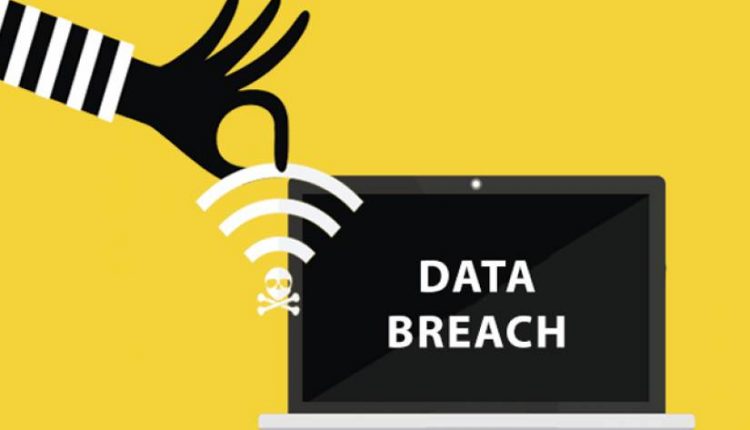How to Avoid Becoming the Next Victim of a Data Breach
Preventing a data breach within your small business or large business is very vital. Cyber attackers and hackers targets websites, emails of an employee, and customer data mainly, as they are an easy target. Data breaches are becoming and growing more powerful. Still, even normal attacks can lead to a data breach.
A breach costs you time and money to repair and poses a threat to your business reputation if you haven't protected your business. In this article, we will look at some of the best practices you can follow and learn how to avoid becoming the next victim of a data breach or cyber attack. By securing your business data, you can save time, money, and your business gets a good reputation.
What are the common sources of a data breach?
Let's begin with an overview of the common type of cyberattacks used to steal business data. Cyber attackers target vulnerable websites to infect their users and steal data. As we said earlier, that email is one of the most common targets for cyber attackers.
Employees are especially vulnerable to targeted email attacks or spear-phishing campaigns. Weak passwords offer cybercriminals an easy access point to your business data and unsecured computers can be stolen or accessed by unauthorized personnel as can paper records, with sensitive customer data.
Fortify your websites and hardware systems.
There are preventive steps you can take and the best practices you can implement in your business to make it harder for thieves to steal data or disrupt your operations. You can guard against malicious cyber attacks by patching your website and updating your security software regularly.
- The business should to install security software and keep it up to date.
- They need to educate employees about proper computer use at the office to avoid malware infection.
- Businesses need to encrypt all data, particularly on laptops and portable devices used for business.
- And, lastly, business owners should take steps to avoid ransomware, including backing up all data daily in two different forms with one of your backup offsite.
Stay up-to-date with payment methods and patch your site and software.
You can expose yourself and your customers to cyberattacks by failing to maintain or patch your website. Weak spots in the coding of the site, unsecured plug-ins, and vulnerable OS can hackers easy access to your servers, and they can breach your data network.
You can guard against this type of attack by making sure your website administrator, your web hosting service or any developer you hire to work on your website follow these best practices:
- First, patch any bugs in your website's coding or in the software you're using. All reputed software providers always issue patches in the form of the latest updates. Keep up to date with any software patches your vendors' issue.
- Second, purchase an SSL, TSL encryption from a security service provider. You also need to use trusted and up-to-date payment processing methods, so replace old POS terminals with EMV chip payment card systems. Use only secure online processing platforms such as PayPal or Payoneer.
Train employees for email security.
Train your employees to be vigilant against targeted email attacks. Attacks like spear-phishing, where an email link or attachment appears to have come from an acquaintance, are still very useful despite growing public awareness of email attacks.
- Educate your employees and warn them not to open a suspicious email from unknown senders.
- They shouldn't click on random links sent via email, and employees shouldn't open unexpected attachments even if they appear to be from a familiar contact.
- As a business owner, you should scan emails regularly from malware, spam, or Phishing and deploy email encryption wherever possible.
Password security is critical.
- Password security is critical to your data security plan. You need to understand that neither you nor employees should share or reset passwords in response to a suspicious email or SMS authentication request.
- Passwords should be eight to ten characters long and include letters and numbers.
- Your passwords should be unique for each email account or website login. They should never be reused. It should be changed every 90 days.
- For more safety and security, you can set 2-step verification to access accounts or sensitive data on company servers. In addition to a username and password, require users to answer a question that only they know the answer to or require them to enter a pin code.
- There are also some other ways you can protect passwords from unauthorized users. Your network security team should be checking employee and shared workstations to make sure that passwords aren't exposed, for instance, on post-it notes.
- Computers also should never be left on without password protection when employees are away from their workstations.
Real-world security is significant, as well.
Though more and more business is taking place online, keeping your paper documents and records secure should still be a priority for you and your employees. Federal Fair and Accurate Credit Transaction Act disposal Rules require businesses to dispose of documents with private consumer information in a timely and secure manner. Don't keep customer information you don't need.
- You need to shred and properly dispose of documents with sensitive information about customers, employees, your business, and your partners.
- Be aware and don't leave laptops or mobile devices unattended in places where they can be accessed or stolen.
- If not needed, a business should wipe clean and destroy old hard drives, CDs, DVDs, and USB memory sticks.
Final words:
Take the basic and necessary steps you can to avoid becoming the next victim of the data breach. One would not want to ruin their business and reputation by the negligence of data security. Investment in data security is a much better option than spending money and time in recovering from a data breach or cyber-attacks.


